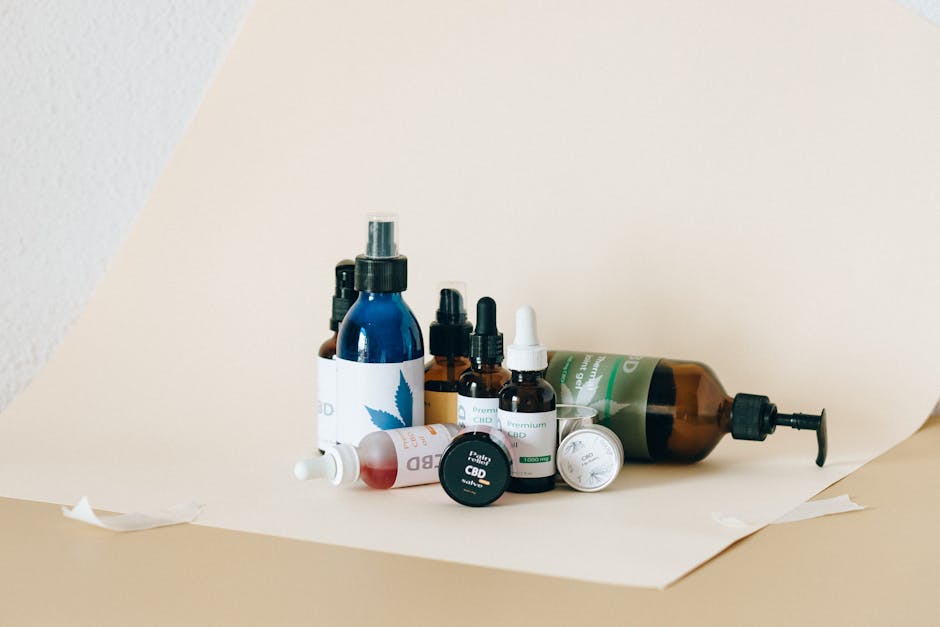Unleashing the Power of Aromatherapy in Skincare: Elevate Your Beauty Routine
The connection between scent and our emotional state is a phenomenon most of us have experienced—remember the calming effect of lavender on a stressful day? This intimate relationship also extends to skincare, where the inclusion of aromatherapy ingredients can deeply influence our skin health and emotional wellbeing. In this exploration, we’ll delve into how these powerful natural elements enhance our beauty routines, making them not just cosmetic treatments, but also holistic rituals. So, let’s embark on a sensory journey to elevate your skincare game!
The Allure of Aromatherapy in Skincare

The use of essential oils in skin products is more than just a fragrant addition; it's an ancient practice with roots in traditional medicine. Aromatherapy is defined as the use of aromatic plant extracts for therapeutic purposes. Essentially, when you apply a cream infused with rose or peppermint oil, you’re engaging in a treatment that aims to heal not only what’s on the surface but also soothe your mind.
Aromatherapy works by utilizing the power of scent, which can evoke memories or influence our emotions. According to a study by the Harvard Health Publishing, specific scents can lower stress levels and even impact how we respond to various stimuli. Integrating these aromatic elements into your skincare routine can thus serve dual purposes—enhancing your skin's vitality while simultaneously lifting your mood.
Emotional Wellbeing: The Hidden Benefit of Scent

The world of skincare often focuses solely on visible results, such as hydration or anti-aging effects, but aromatherapy invites us to consider the emotional aspect underlying our beauty rituals. Many people fail to realize the integral role that scent plays in their overall experience with skincare products. Consider the invigorating properties of citrus scents, which can promote feelings of happiness and invigoration.
Moreover, research has shown that certain scents can trigger specific emotional responses. For example, studies from the Fielding Graduate University highlight that scents like vanilla and chamomile can reduce anxiety, making them ideal components in bedtime routines. This allows skincare moments to evolve into self-care rituals that nourish both body and mind—turning your nightly cleansing session into a meditative experience.
For further insights into the emotional influence of beauty practices, check out our exploration of how skincare influences happiness.
Essential Aromatherapy Ingredients to Consider

When searching for skincare products, it's important to familiarize yourself with popular aromatherapy ingredients and their benefits. Here’s a closer look at some of the most effective ones and what they bring to your routine:
1. Lavender
Renowned for its calming effects, lavender has been used for centuries to reduce anxiety and promote a sense of relaxation. In skincare, lavender's antibacterial and anti-inflammatory properties can also help with acne, making it a win-win. A gentle lavender-infused cream post-cleansing provides nourishing hydration while setting the stage for s restful night.
2. Tea Tree Oil
A powerhouse in the acne-fighting arena, tea tree oil is famous for its antiseptic properties. Known for being more than a simple scent, tea tree oil works at the skin level to battle breakouts while simultaneously providing an earthy aroma that can decrease stress and anxiety. It’s always best to dilute tea tree oil before applying it to avoid skin irritation.
3. Rose
The luxurious scent of rose is often associated with romance, but its skincare benefits are equally enchanting. Rose oil is well-known for hydrating dry skin and reducing signs of aging. Just a few drops in your moisturizer can transform your skincare routine into a fragrant experience that calms and rejuvenates.
4. Citrus Oils
Scents like orange, lemon, and grapefruit are invigorating and uplifting. They are also great for toning the skin and improving circulation. Look for products that highlight these essential oil infusions if you’re looking to sprinkle a bit of zest into your day.
For innovative insights into how different ingredients impact your skin, explore our article on soil quality's surprising impact on skincare.
How to Incorporate Aromatherapy into Your Routine
Transitioning to an aromatherapy-infused skincare routine can be seamless. Here’s how you can elevate your beauty regimen:
1. Start with Essential Oils
Experiment with essential oils in your current skincare. You can add a few drops of your chosen oil to existing creams or serums. Just remember to patch test to ensure no adverse reactions occur.
2. Choose Aromatherapy-Focused Products
Several skincare brands specialize in products containing high-quality essential oils. Look for natural, organic options to ensure that the therapeutic benefits are maintained. Brands like doTERRA and Young Living offer great choices that cater to various skin needs.
3. Create a Spa-like Environment
Elevate your skincare routine to a delightful ritual by transforming your space into a spa-like environment. Light candles, play soothing music, and, if possible, treat yourself to a warm bath infused with aromatic bath salts. This encourages relaxation and primes your mind for self-care.
4. Implement Mindfulness
Use your skincare routine as a moment for mindfulness. As you engage in cleansing, moisturizing, and treating your skin, take deep breaths and focus on the scents around you. Reflect on how they make you feel, allowing each application to become a meditative act of self-love.
The Science Behind Aromatherapy in Skincare
As the popularity of aromatherapy in skincare grows, so does the study of its scientific underpinnings. Research has demonstrated that the olfactory system, which processes scents, is linked to the limbic system—an area of the brain that regulates emotions. This is why fragrant products can evoke strong emotional responses, and also why certain scents can become synonymous with feelings of calm or happiness.
For instance, a comprehensive review published in the Journal of Cosmetic Dermatology found that above-ground parts of aromatic plants contain a range of bioactive compounds, which can promote healthy skin and wellbeing through topical application. Incorporating these elements benefits not just the skin’s appearance but also serves a therapeutic function.
Exploring the Trend of Clean Beauty and Upcycled Ingredients
In recent years, there's been a shift toward cleaner beauty, with consumers seeking products that benefit both their skin and the planet. Among other approaches, the use of upcycled ingredients in aromatherapy-infused skincare is gaining momentum. Instead of discarding certain plant parts, brands are finding innovative ways to repurpose them, creating sustainable, eco-friendly solutions for optimum skincare benefits. This emerging trend not only makes products more environmentally viable but also enhances the efficacy and scent profiles.
Integrating Aromatherapy with Your Skin's Unique Needs
Every individual's skin varies, thus requiring a tailored approach when integrating aromatherapy. Here's how to marry your skin's unique needs with suitable fragrant options:
1. Identify Your Skin Type
Understand whether you have oily, dry, combination, or sensitive skin. Each type can respond differently to certain oils. Generally, oily skin may benefit from tea tree or citrus oils, while dry skin thrives on the hydration provided by rose or chamomile.
2. Address Specific Concerns
If you are struggling with specific issues like acne, choose oils known for their antibacterial properties. People looking to reduce signs of aging should lean toward oils with strong antioxidant properties, such as rosehip or frankincense.
3. Customize Your Skincare Routine
Combine aromatherapy ingredients with other active components tailored to your skin type. For example, if you focus on anti-aging, consider pairing the aromatic essence of frankincense with retinol in your night routine.
For expert insights on how the newest technology impacts skincare personalization, explore how artificial intelligence personalizes skincare.
Common Misconceptions About Aromatherapy and Skincare
As with any effective practice, there are myths surrounding aromatherapy's use in skincare. Here are a few misconceptions to dispel:
1. Aromatherapy is Just About Scent
While scent is a vital part of aromatherapy, its benefits extend far beyond simply smelling good. The topical application of essential oils can provide significant therapeutic and healing properties directly to the skin.
2. All Essential Oils are Safe for Skin
Not all essential oils are created equal, and some can be harsh on the skin. It's essential to research each oil before use and, when necessary, dilute them with a carrier oil such as jojoba or coconut oil for safe application.
3. Aromatherapy Cannot Replace Medical Treatments
Aromatherapy can certainly enhance your overall skincare experience and emotional wellbeing, but it should not be a substitute for professional medical treatments for skin conditions. Always consult with a dermatologist for any persistent skin issues.
Final Thoughts: Elevate Your Skincare Journey with Scent
Integrating aromatherapy into your skincare routine is not merely a trend; it's a holistic approach to enhancing beauty through spirit and skin. By understanding the relationships between certain scents and both skin health and emotional wellness, you're equipped to transform your skincare rituals into self-care ceremonies that resonate deeply with your soul.
So, choose your favorite aromas and elevate your experience—your skin (and mind) will thank you for it!



